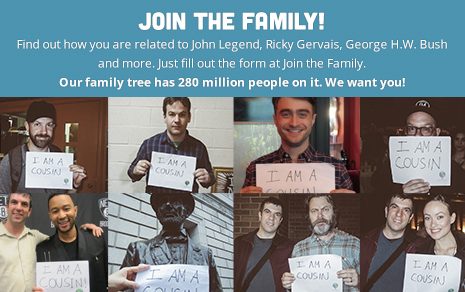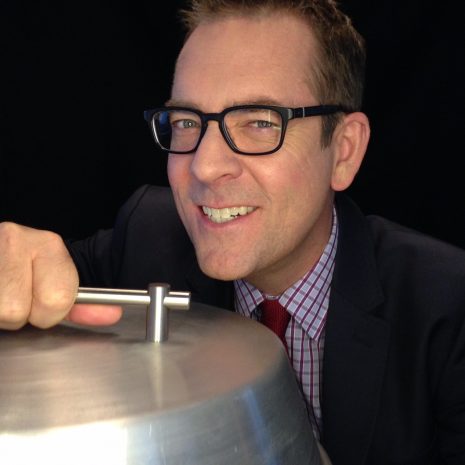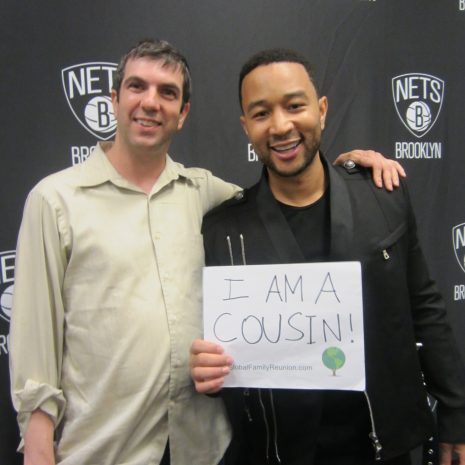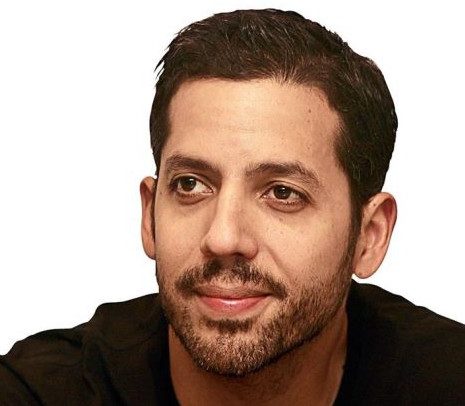Editor’s Note: Angel Hundley — one of the key members of the Global Family team — wrote a wonderful lay sermon for her Unitarian Universalist church in Huntsville, Alabama about the Global Family Reunion. We’re pasting it below. Angel is the Branch Party Liaison for the GFR’s many satellite parties. She records random thoughts at https://onerandomangel.blogspot.com/
Call it a clan, call it a network, call it a tribe, call it a family. Whatever you call it, whoever you are, you need one. ~Jane Howard
Family. We all need it. Today I want us to think about the families that we choose.
In every family there is disappointment and hurt. Sometimes even failures. So when I talk today about an obligation to family, I don’t mean we should stay in hurtful relationships. I mean the “family” that does support and love you. The family that we all need is a network of relationships that can bring us support, joy, fun and connection.
Maybe for some of you when you hear the word family you do picture your birth parents and your blood relatives. For others your family might have come through adoption. Or marriage. Or maybe your family is a group that started out as just great friends. Growing up, my favorite “aunt” was actually my mother’s best friend from high school. And her children were more like siblings to me than even just cousins. Think about that family for you. This is the feeling of family I’d like you to draw from today.
And I know many of you have been working hard for years to fight for marriage rights. To legally have the families you’ve built, or your friends have built in love be recognized in the law. And when we scheduled this sermon for today in the worship meeting even just a couple months ago, I had no idea that when I gave the talk we’d be one day before Wedding Week in Huntsville, Al. Honestly, I never thought we’d be one year from equal marriage rights in Alabama, let alone one day from actual ceremonies being held in Big Spring Park! What a glorious Sunday this turned out to be for me to share with you this extraordinary project about building family.
So why do we need family? I think because we need to know that someone will be there for us no matter what. See, you take care of your family. When Jason and I were first married, we took in my teen-age cousin who had been living as a runaway on the streets. And then a few years later, we took in that cousin’s younger brother after he was released from a juvenile work/farm program. Moved him all the way from Ohio to California with us. We did this because they were our family and they needed a home. We certainly didn’t “need” troubled teenagers living with us when we were newlyweds. But I felt a responsibility to them because they were my family, and I knew I had the means to help them at that time. And Jason felt by marrying me, my family became his family, and so we felt obligated to help them. And I know that Jason and I are not alone in believing you take care of your family. Again, however your family came to be.
So what if we could widen that definition of family? What if we as a society could build a new way of viewing who we are responsible for helping? Who are family really is? I’ve been volunteering with a Project called The Global Family Reunion for the last five months that is attempting to do just that.
Before I get into that though, let me back up and tell you how I got interested and involved in this project. It all starts with my adoration of, perhaps even slight obsession with an author named AJ Jacobs. He wrote the Year of Living Biblically and a few other books. And I love reading every word he writes. He makes me laugh and think. And I can pay no higher compliment than that really. And so when I was looking at recent TED Talks on my Apple TV this summer and saw AJ had a new one, I obviously watched it. It was about his new book project- the Global Family Reunion. The basic premise was that he was trying to build the world’s largest family tree. And he invited people to hook up to the tree and then come to a party in New York, get a bracelet and be in a picture. Well, if someone you’re mildly obsessed with invites you to be in a picture with them, you make every effort to go. And so I decided to start researching my family tree.
Let me be clear, at this point in the story, I had no interest in genealogy or my ancestors. See, much of my “family” is not blood related to me. Instead my family has been built through second marriages. I could not have loved my step-relatives more. And so I knew that family was much more than blood, so I never really had interest in researching my ancestors. Until AJ Jacobs invited me to a party… And so I got to work.
I’m going to read now from a blog post I wrote on August 22, 2014.
Let’s all meet at the Global Family Reunion!
I just found out I am a cousin of my favorite non-fiction writer, AJ Jacobs. And by cousin, I mean I am a distant relative on his Aunt Jane’s husband’s side of the family. And by distant relative, I mean we have 31 degrees of separation between us on the WikiTree Connection Finder. And that, my friends, is good enough to get me in the family photo!
This photo will be taken at the Global Family Reunion in New York City, June 2015. And you are all invited too. The website describes the event as “the biggest, most extraordinary and most inclusive family reunion in history. Come meet fascinating cousins you never knew you had — and learn about how we are building a Family Tree of the entire Human Race.”
Sounds awesome, right?!? And as for the photo, “Those with a proven connection to the world’s biggest family tree (currently at 77 million people) get a bracelet and take part of the largest family photo in history.” And if all that isn’t enough to get you excited, “Sister Sledge will lead us in the largest sing-along of “We Are Family” in history.” How could you not want to be part of that?!
So in order to connect myself to this Family Tree, I had to do some research. Prior to starting, I literally only knew the names of 4 out of my 8 great-grandparents. And I knew zero about any one else further back on my tree. But I knew I loved reading about all of AJ Jacobs projects through the years, and here was my chance to be part of one. So I started with no other goal in mind really than to get my bracelet and eligibility for the picture.
I actually met that goal pretty early on in my research. Through my great-grandma Rodger’s side of the family. But as I started to add names to my family tree, I kinda got hooked on it. And I’ve learned some really cool things about many of my ancestors.
My 7-year-old daughter’s favorite fact is that I traced one branch of my tree back to King Alpin and Queen Fergusia of Scotland. She asked, “so we are royalty?!?” I tried to explain that we were just distant descendants of Royalty on one branch of our tree. This was pretty much a distinction without a difference for her. So if you run into her one day, and she expects you to kneel, I apologize… Of course she also requested that I trace us back to the first monkey. I told her unfortunately written records didn’t go back that far…
My favorite newly found ancestor by far is my 1st cousin 8 times removed, Mary Elizabeth Greenlee (born McDowell). She was born in Northern Ireland in 1707, and she died in Rockbridge County, Virgina in 1809. She is described in one history as, “a feisty lady. Some people thought she was a witch. The Indians thought she was crazy. They believed bad things would happen to them if they harmed a crazy person and Mary was allowed to freely roam in and out of their camps. Mary probably was not crazy, but was actually very smart, although somewhat eccentric.”
Now that’s someone I am proud to call family…
True confession time, I moved to the South 15 years ago, and I never understood the Southern obsession with family history. In fact, I kinda mocked it. My husband and I hung a plaque marker on our first house that read, “In 1868 nothing happened here.” I really did not get the pride people had in their lineage or in who had lived or slept once in their homes ages ago.
And I certainly did not care about who my ancestors were. What I realize now, is that I did not care because I did not know. Over the last weeks I have developed an unexpected attachment to my roots. I feel part of something bigger than I ever have before. I have felt a little less of just one random life.
It is easy to not care about something when you have little to no knowledge about it. Which is kind of the point of the whole Global Family Reunion Project. When you realize you are literally related through blood or marriage to 77 other million people (and counting) it makes it harder to not care about those other people. And the more knowledge one gets about our great big human family, the hope is the more one will care about our great big human family.
Ok, so I sent the link to that blog post to The Global Family Reunion (GFR) email on their website. Their chief cousin coordinator, who I now know as Eowyn, posted the link on the GFR Facebook page. AJ Jacobs read my post and commented, “Hi Angel, What a wonderful post, my cousin! Thank you so much! And I will DEFINITELY kneel before your daughter when I meet her. I can’t wait. And I love my feisty, eccentric ancestor as well. I’m at aj@ajjacobs.com if you ever have any questions.
AJ”
So if someone you are mildly obsessed with invites you to a conversation, you join in. And so I emailed AJ Jacobs and asked if he’d considered encouraging people to have their own Global Family reunions on June 6th much like the Yuri’s Night Space Party model I’ve been involved with for years. He said they had, but hadn’t quite started figuring out things and would I like to help. Week later I’m on a conference call with AJ and Eowyn brainstorming ideas and I’m the Branch Party Liaison for these new events which I even named. Talk about surreal. I’ve now helped sign up groups like the Cherokee Nation to host their own Global Family Reunion Branch Parties on the same day. And there will be one here in Huntsville in Big Spring Park hosted by CAJA. Details still being worked out.
But back to my surreal start in the project, I mean when AJ first started emailing me he was all like, “hey, this is your cousin AJ” and “hello cousin Angel” and cousin this and cousin that. I felt a little like I had joined a cult. Not going to lie. But eventually the cousin talk became normal. Instead of feeling like I was in some dream world corresponding with a famous author I had loved for years, it began to feel like I really was just brainstorming and working with cousin AJ. And I even send emails out now addressing people as cousin, and it feels totally natural.
That’s one thing I really love about AJ’s approach to this work. He’s not just making it about the science or genealogy. He really is working to build community and redefine human relationships. But I’ll get to that in a minute. First let me review the science and genealogy work involved in the project.
It should come as no surprise to anyone who understands evolution, or anyone even who believes in the creation myth for that matter, that all humans can be traced back to two ancestors. Scientists call them Mitochondrial Eve and Y Chromosomal Adam and they lived in Africa 100,000 to 300,000 years ago.
What is perhaps surprising though is that according to MIT scientists, at most, we are 70th cousins from anyone else on earth. 70th cousins. By blood relationship. That’s less connections between you and every other human on the planet than there are people in the church right now. Think about that for a moment.
Here’s how AJ describes the project in article he wrote for Mental Floss back in July of 2014.
“I’m one of thousands of researchers tackling the biggest challenge in the history of ancestry: We are building a family tree of the entire human race. All seven billion members.
It’s an incredibly ambitious project, requiring countless hours online, billions of obscure records, and unprecedented numbers of DNA tests. And frankly, we’ve got a long way to go. But at least we’ve made a dent: Currently, the world family tree includes some 77 million people in all seven continents (including Antarctica). That’s 77 million people on a single tree, all connected by blood or marriage or (sometimes) both. Which makes for the longest branches in human history. Paltrow is 17 steps from me. Einstein is 21. President Obama is my aunt’s fifth great-aunt’s husband’s father’s wife’s seventh great-nephew. Practically my older brother!
Twenty years ago, we wouldn’t have been able to conceive of this megatree. Back then, in order to build your tree, you had to schlep to, say, a Cleveland courthouse or write oft-ignored letters to distant relatives. Then along came the Internet and the Wikipedia model. Several sites—including WikiTree and Geni (which is owned by MyHeritage)—have revolutionized the field with a collaborative, crowdsourced approach to family-tree planting.
So how does it work, exactly? You start small with a family sampling, entering the details you know. If the “A.J. Jacobs” on your tree matches the “A.J. Jacobs” on somebody else’s tree, then you are given the option to combine them. With a click, your tree can double. Repeat this a few times and you will eventually be linked to a worldwide family tree. (Geni’s Big Tree is 77 million, and WikiTree’s is 7 million).
“It’s much easier to collaborate instead of working on your own,” says Gilad Japhet, the CEO of MyHeritage and Geni. “Imagine a million people solving a single multibillion-piece jigsaw puzzle instead of everyone solving their own separate puzzles. In a decade or less, I believe we’ll have a single tree that will include most of the people living on earth.”
Before we get there, we’ve got obstacles to overcome. One big challenge is accuracy. If you’ve got thousands of collaborators, what’s to stop one from changing the tree so that Jimi Hendrix is the son of Chester A. Arthur? Luckily, a core of volunteer experts (they call themselves forest rangers) is trying to verify the connections and make sure they’re well-documented. But this remains an area of dispute, especially the further you go back. (Some branches claim to go back to Biblical times, which requires more leaps of faith than I’m willing to make.)
There’s also the privacy issue. Some traditional genealogists don’t like that family names are out in the open. Instances of sabotage have even occurred, where profiles are deleted and branches cut. Geni and WikiTree do obscure the names of living persons, but privacy continues to be a flash point for modern genealogists.
Some skeptics have asked why we should care about identifying all these branches of our family trees. “This sounds like a nightmare,” one friend told me. “I have enough trouble with the relatives I have already. I don’t want millions more.”
I understand his point, but here’s why I think the mega-tree will be world-changing, assuming we can pull it off. First: the scientific value. A team of MIT scientists is studying the Geni world family tree to see how populations migrate and how diseases are passed down, which will help pinpoint genes and cures. In fact, it’s already yielding insights into the heritability of longevity. Second, and I know this sounds idealistic, but my collaborators and I believe it might make the world a kinder place.”
A kinder place- we’ll get to his world vision in a moment. An update on the stats now-
In July 2014, just 6 months ago, when that article was written the tree included 77 million people, but Cousin AJ told me two days ago it is now at 85 million people! 40 million of whom are alive today. 40 million live people on the same family tree. And we’re throwing a party for them… And oh by the way, when I wrote my blog, I was 31 steps from AJ through my mother’s side. Now my Wikitree connector says I am just 30 steps away from him through my dad’s side! So to review- I’m connected on both my parents’ sides. You see what that means? My parents are cousins too!
So why should we care about this project beyond just curiosity? In one article about the project a Genealogist named Megan Cherie Owens wrote “hardly surprising that well-resourced people in the public eye have well-resourced ancestors in common”.
She added: “It’s a bit of fun, and sweet to think of us all as ‘a global family’. But it’s really just a mathematical exercise, resulting in not very meaningful multiple-degrees-of-separation.”
Not very meaningful degrees of separation. I would agree with her about that if you just strictly look at the research. Building a big family tree might be useful for scientists tracing disease, but how is that going to make the world a kinder place?
Here is where AJs approach and cousin talk comes in. The whole goal of the reunion is to bring people to the table to discuss ideas of family. He has planned it to be part TED Talk part party. There will be scientists talking and Sister Sledge singing and comedians making us laugh. All on the same day. And all of them calling each other cousin.
One of the things AJ likes to point out to people is how we are all closely related to someone like Einstein and someone like Jeffery Dahmer. If not exactly them. The point is none of us have any more reason than any other human to be proud or ashamed of our heritage. Because we have the same heritage if you go back far enough. He also has been working to show politicians how closely they are related to one another. One of my favorite quotes is what Barbara Bush said upon learning the Bush’s were pretty close relatives to Bill Clinton. She said, “‘I always suspected he was my son from another mother.’”
And From an article AJ wrote for the Guardian after the mid-term elections, “It’s been a tough week for the Obama family.
On Tuesday night, Barack Obama’s second cousin – a radiologist named Milton Wolf – lost the closer-than-expected Republican primary for US Senate in Kansas. Wolf and Obama share a relatively recent ancestor, a 19th century farm laborer named Thomas McCurry. Barack leaned left, Milton leaned right – he was a Tea Party candidate who believed his second cousin was “destroying America”. But still, they are, officially, kin.
So now Barack Obama is deprived of having a cousin in the US Senate.
Or is he?
I’m working with a team of researchers who are building the biggest family tree in history. And I’ve got good news for President Obama: it turns out that the man who defeated Wolf, the incumbent Kansas senator Pat Roberts, is also his cousin. Really. Roberts is Obama’s 13th cousin, four times removed.
In fact, we’ve found that Obama has no less than 44 confirmed cousins in the Senate, including Texas Republican Ted Cruz (the husband of Obama’s 14th cousin, once removed) and Arizona Republican Jeff Flake (Obama’s eighth cousin, three times removed). And more to come. In the next few months, we plan to figure out how all 100 senators are connected to each other. One big happy, dysfunctional family…
Maybe we could put up a big family-tree chart in the Senate chamber to remind them of their close ties. (I’m only sort of joking.) Maybe politicians could address each other in debates by yielding their time to the senior senator from Wisconsin – and their third cousin once removed.”
I like this idea of having the senators address each other with their familial ties in the title. I believe words matter. And socio-linguists would back me up on that. Maybe showing someone they’re 12 steps from someone else on a family tree won’t change their perception of family. Or necessarily of the human race. But what if we started to define relationships in the language of family? What if instead of using “race” on census forms we asked for the branch of the family you belonged to? What if we identified groups of people in relation to other groups instead of how they are different?
It’s sort of the “fake it till you make it” strategy on a grand scale. What if we started to use the language of family, which is honestly more scientifically grounded in truth than terms like “race” anyway? Would our natural instinct to feel responsible for family make us somehow feel more responsible to new groups identified enough times as family? I’d like to think it would. I’d like to think we can widen our positive connotations from family- fun, connection, support. That’s what I have faith in.
I have faith in the power of words and our longing for family. I have faith that one day we can understand that our family can be a large, messy, inclusive circle encompassing all. That we can define ourselves by relationships not by differences. I have faith that one day we may all feel some obligation to take in a homeless teen off the streets if we have the means simply because he is our 12th cousin once removed. Because cousins take care of each other.
I hope you will want to join my cousin AJ and me in this effort. I invite you to go to Global Family reunion.com and take a look at the project. Or ask me how you can get involved. And I have faith that one day soon we will all be singing together.
We are family
I got all my sisters with me
We are family
Get up everybody and sing
Everyone can see we’re together
As we walk on by
and we fly just like birds of a feather
I won’t tell no lie
all of the people around us they say
Can they be that close
Just let me state for the record
We’re giving love in a family dose
We are family
I got all my sisters with me
We are family
Get up everybody and sing







